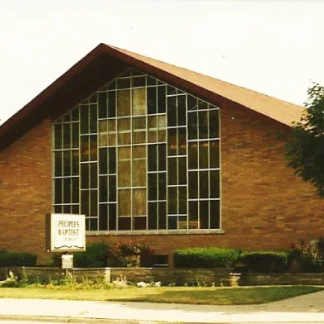DOT Caring Centers
DOT Caring Centers is a private rehab located in Bay City, Michigan. DOT Caring ...
RU Recovery Ministries - Peoples Baptist Church is a faith based program designed to help individuals struggling with chemical dependency. RU Recovery Ministries - Peoples Baptist Church is located in Bay City, Michigan.
At RU Recovery Ministries, they hope to reach the addicted with hope and recovery. They believe people suffering from addiction can recover and be restored thanks to the power of the victorious hidden life of Jesus Christ. They are biblically based program.
Their classes have three segments: talking to God in prayer and testimonies, talk to each other in small groups, and a message from the Bible. Some of the areas covered by RU Recovery Ministries in their Full Throttle program include: Peer Pressure, Dating, Family Relationships, Biblical Sexual Ethics, Drug and Alcohol Abuse, Self-Destructive Behavior, Life Choices, among others.
Contact us for more information: (989) 684-7276

Connect with RU Recovery Ministries - Peoples Baptist Church by calling their admissions team directly.
(989) 684-7276 Website Get DirectionsEating disorders include anorexia, bulimia, binge eating, and dysfunctional eating patterns. Many psychologists and other mental health professionals consider eating disorders to be food addictions, meaning food is being used in an addictive way (similar to drug or alcohol addiction). Certain substance abuse treatment programs will have treatment for eating disorders as one of the services offered. An eating disorder may also present as a co-occuring disorder or dual diagnosis alongside drug and alcohol addiction.
Research clearly demonstrates that recovery is far more successful and sustainable when loved ones like family members participate in rehab and substance abuse treatment. Genetic factors may be at play when it comes to drug and alcohol addiction, as well as mental health issues. Family dynamics often play a critical role in addiction triggers, and if properly educated, family members can be a strong source of support when it comes to rehabilitation.
Group therapy is any therapeutic work that happens in a group (not one-on-one). There are a number of different group therapy modalities, including support groups, experiential therapy, psycho-education, and more. Group therapy involves treatment as well as processing interaction between group members.
Life skills trainings involve all the skills a person must have in order to function successfully in the world. These include time management, career guidance, money management, and effective communication. Truly successful addiction recovery is based on the ability to not only live substance-free, but to thrive. Life skills teaches the practical necessities of functioning in society, which sets clients up for success in life, and therefore sobriety.
Research clearly demonstrates that recovery is far more successful and sustainable when loved ones like family members participate in rehab and substance abuse treatment. Genetic factors may be at play when it comes to drug and alcohol addiction, as well as mental health issues. Family dynamics often play a critical role in addiction triggers, and if properly educated, family members can be a strong source of support when it comes to rehabilitation.
Group therapy is any therapeutic work that happens in a group (not one-on-one). There are a number of different group therapy modalities, including support groups, experiential therapy, psycho-education, and more. Group therapy involves treatment as well as processing interaction between group members.
Life skills trainings involve all the skills a person must have in order to function successfully in the world. These include time management, career guidance, money management, and effective communication. Truly successful addiction recovery is based on the ability to not only live substance-free, but to thrive. Life skills teaches the practical necessities of functioning in society, which sets clients up for success in life, and therefore sobriety.
Group therapy is any therapeutic work that happens in a group (not one-on-one). There are a number of different group therapy modalities, including support groups, experiential therapy, psycho-education, and more. Group therapy involves treatment as well as processing interaction between group members.
Life skills trainings involve all the skills a person must have in order to function successfully in the world. These include time management, career guidance, money management, and effective communication. Truly successful addiction recovery is based on the ability to not only live substance-free, but to thrive. Life skills teaches the practical necessities of functioning in society, which sets clients up for success in life, and therefore sobriety.
Life skills trainings involve all the skills a person must have in order to function successfully in the world. These include time management, career guidance, money management, and effective communication. Truly successful addiction recovery is based on the ability to not only live substance-free, but to thrive. Life skills teaches the practical necessities of functioning in society, which sets clients up for success in life, and therefore sobriety.
DOT Caring Centers is a private rehab located in Bay City, Michigan. DOT Caring ...
Recovery Pathways is a private rehab located in Bay City, Michigan. Recovery Pat...
Alcoholics For Christ - In His Presence Ministries is located in Bay City, Michi...
Sacred Heart Rehabilitation Center is a private rehab located in Bay City, Michi...